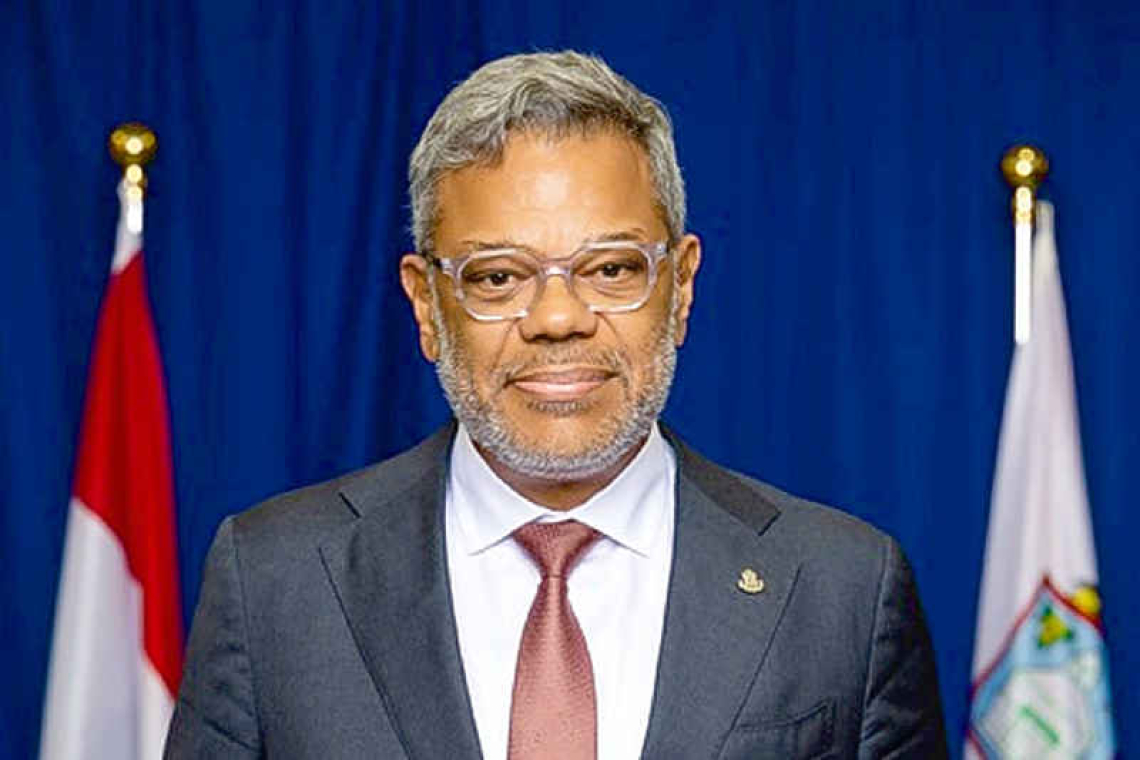PHILIPSBURG--A recent recommendation by Curaçao’s Regulatory Authority for Consumer Protection (RAC) and St. Maarten’s Bureau Telecommunications and Post (BTP) to lower electricity tariffs by six to seven cents per kilowatt hour has met resistance from N.V. GEBE, which says it does not understand how the recommendation was calculated and will conduct its own internal review.
Despite formal submissions by the government based on the RAC-BTP report, Prime Minister Dr. Luc Mercelina confirmed on Wednesday that no immediate action will be taken by the utility company, which disagrees with key aspects of the proposal.
“This position was already hinted at by GEBE’s temporary manager a few weeks ago,” Mercelina said during the Council of Ministers press briefing.
Mercelina, who commissioned the joint RAC-BTP study, said the report offers more than 40 pages of findings and proposed relief measures, including a significant reduction in energy expenses for consumers. He reiterated his administration’s commitment to easing the burden of high energy prices on the people of St. Maarten.
“I presented those recommendations to GEBE in writing,” said Mercelina, emphasising that the government understands the need for relief for consumers. “Unfortunately, GEBE does not fully agree with the proposals, particularly the suggested rate reduction, citing the company’s vulnerable financial position.”
According to Mercelina, GEBE’s leadership questioned the methodology used by RAC and BTP to arrive at the recommended 6 to 7 cents per kilowatt-hour and has opted to conduct its own independent analysis of the current tariff structure.
“They indicated they didn’t fully grasp how RAC-BTP reached the 6-7 cent range, and they’ve decided to analyse the matter internally,” he said.
In response, Mercelina has requested a detailed explanation from GEBE’s supervisory board, including a copy of its upcoming report. “I’ve sent a follow-up letter requesting clarification and their own findings. We want to understand how they are challenging the conclusions of RAC and BTP,” he said.
While the disagreement between government and the utility company remains unresolved, Mercelina said discussions have been “constructive” so far, with two meetings held to date. He emphasised that the government will continue to push for concrete results to reduce electricity expenses.
Mercelina admitted that there is clear tension. “On one hand, our people are under immense financial pressure. On the other, GEBE points to its own fragile financial condition.”
No firm timeline has been given for the completion of GEBE’s independent analysis, but Mercelina expressed hope for a swift and transparent outcome.
“We acknowledge that BTP is the designated authority on matters of price regulation, and we await GEBE’s input with interest,” he said. “But we also want to be clear: our position has not changed. We are pushing for results.”







